These vintage photos show one of the unique features of Detroit in winter: the famous ice fountain on Washington Boulevard.
Several jets of water are allowed to play all winter, resulting in tons of crystal and massive berg of ice that at times reached heights of 30 feet or more. In particularly chilly years, the fountain was said to have grown as tall as 60 feet.
Washington Boulevard is one of Detroit’s main boulevards and was part of Augustus Woodward’s design for the city of Detroit following the Great Fire of 1805.
There is some debate as to whether the district consists only of buildings facing Washington Boulevard between State and Clifford streets, or if it extends to Michigan Avenue.
The southern end of Washington Boulevard begins at the Detroit River and ends to the north at Grand Circus Park. Some of the most significant buildings in the historic district include the Westin Book-Cadillac Hotel, the Book Tower, the Industrial-Stevens Apartments, St. Aloysius Church and Chancery Building, and Detroit City Club Apartments (originally Trolley Plaza).
The initial construction of the buildings in this district began in 1901 with the Himelhoch Apartments, and continued until 1930, with most buildings being erected during the 1920s.
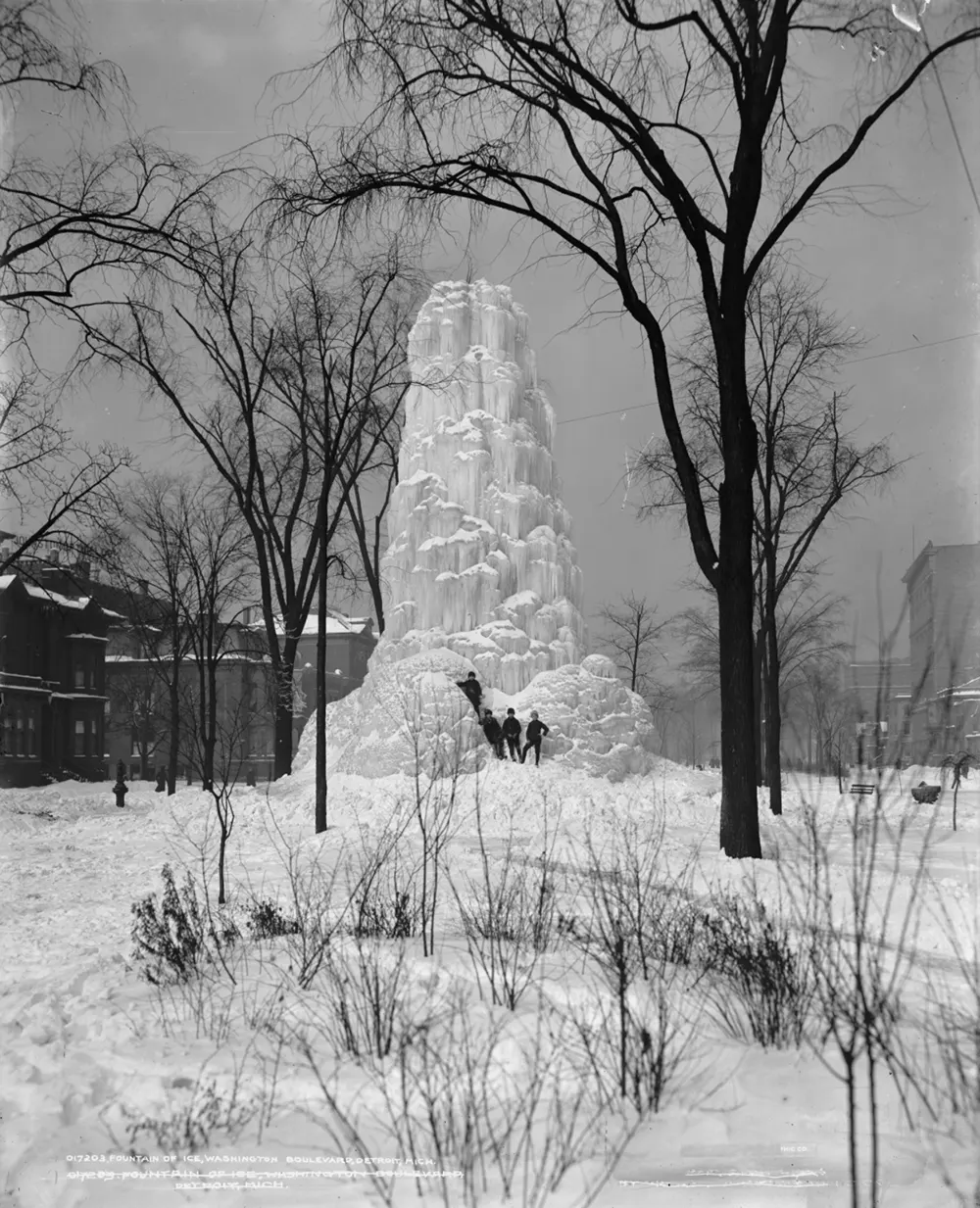 In the early part of the 20th century, Washington Boulevard was broadened and refurbished as part of the City Beautiful movement.
In the early part of the 20th century, Washington Boulevard was broadened and refurbished as part of the City Beautiful movement.
The new development was an attempt to rival New York City’s Fifth Avenue and bolster Detroit’s reputation as the “Paris of the Midwest.”
Edward H. Bennett, a distinguished master planner, led the transformation of Washington Boulevard into a Beaux-Arts streetscape, complete with a sculpture-lined park between two one-way streets.
The Washington Boulevard Historic District was redesigned in the late 1970s to include a tourist trolley that ran the length of the Boulevard and extended along Jefferson Avenue to Hart Plaza, as well as an urban pedestrian mall, new sculptures, and an amphitheater.
It has since been restored to its original plan. The district was added to the National Register of Historic Places in 1982.



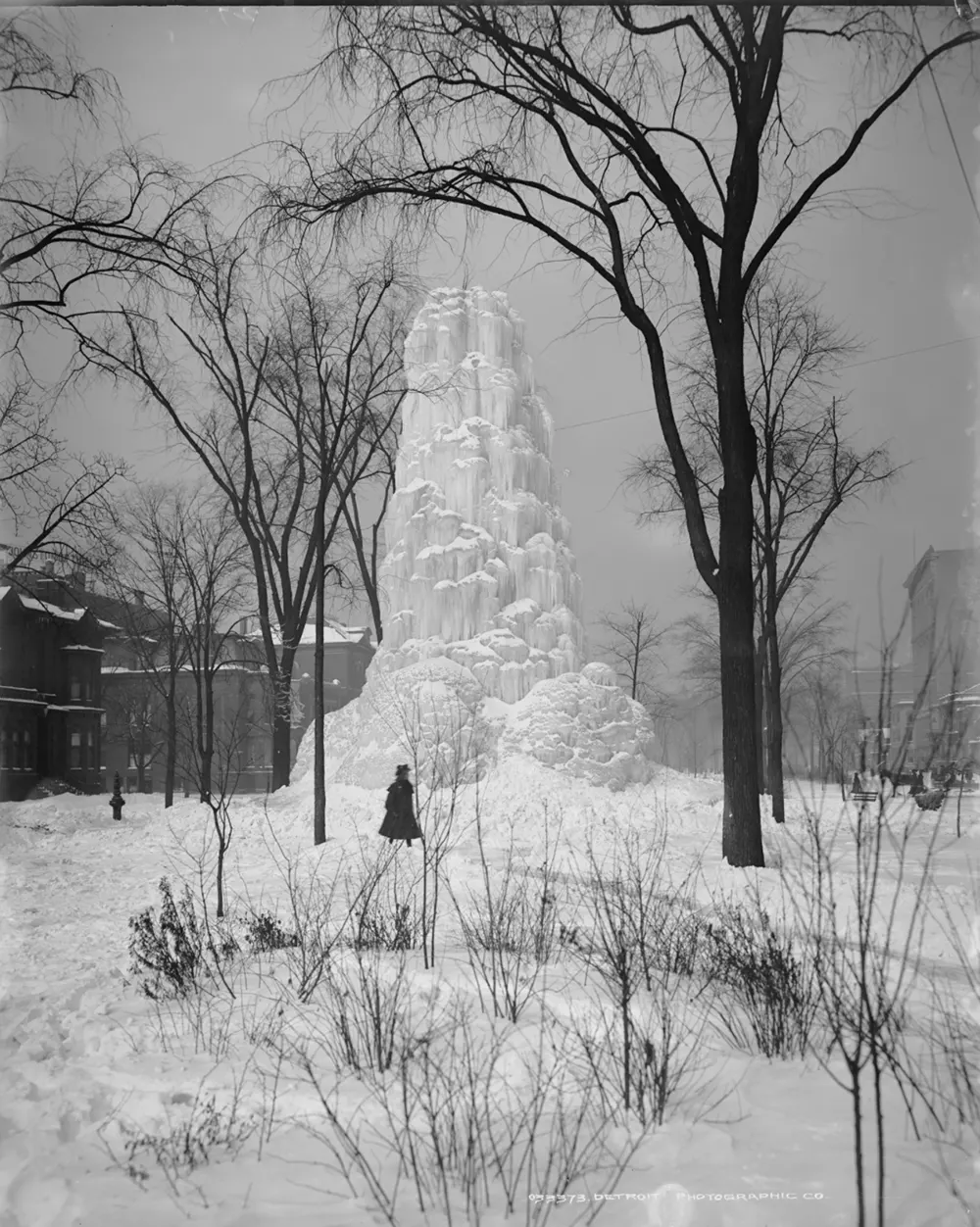

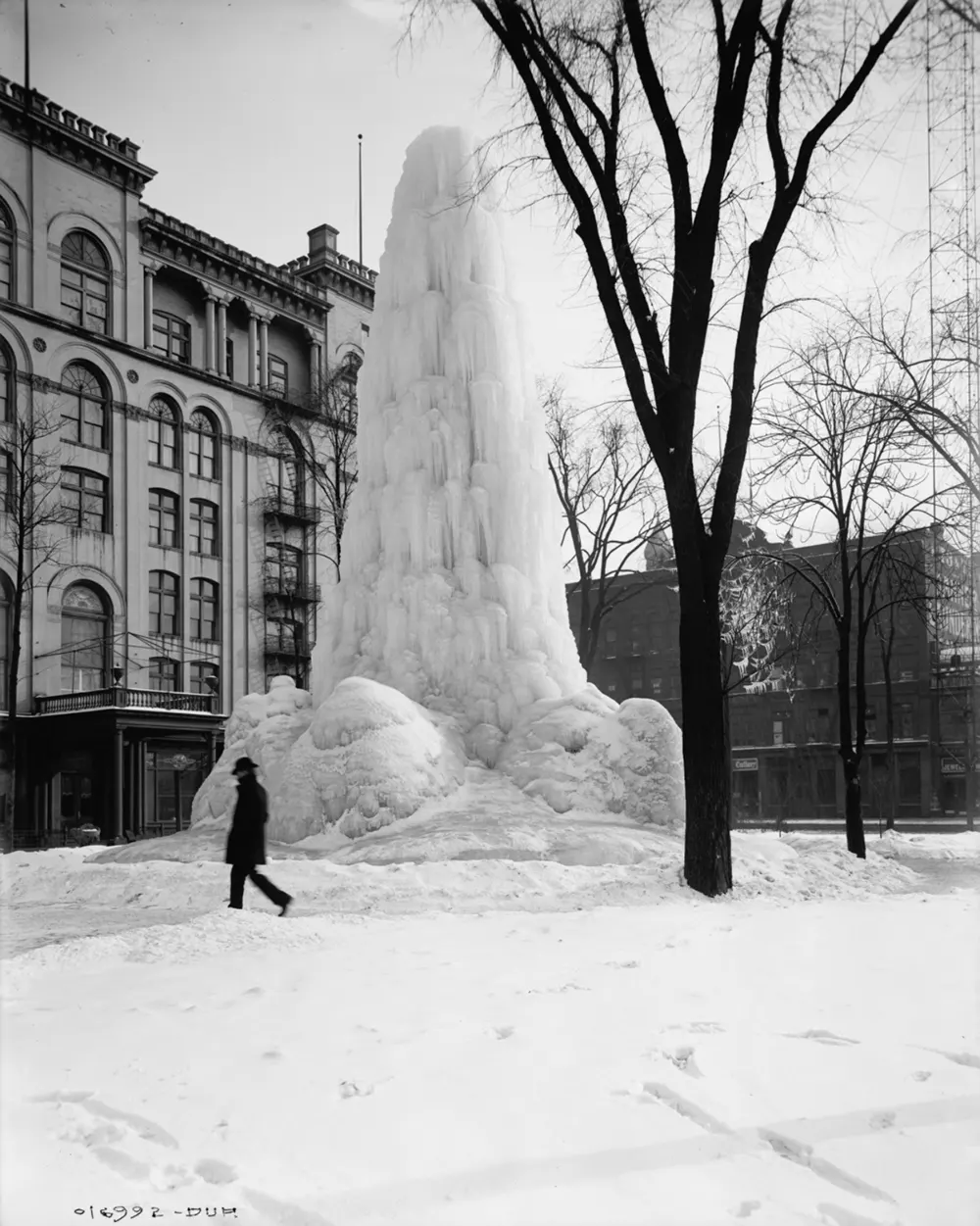

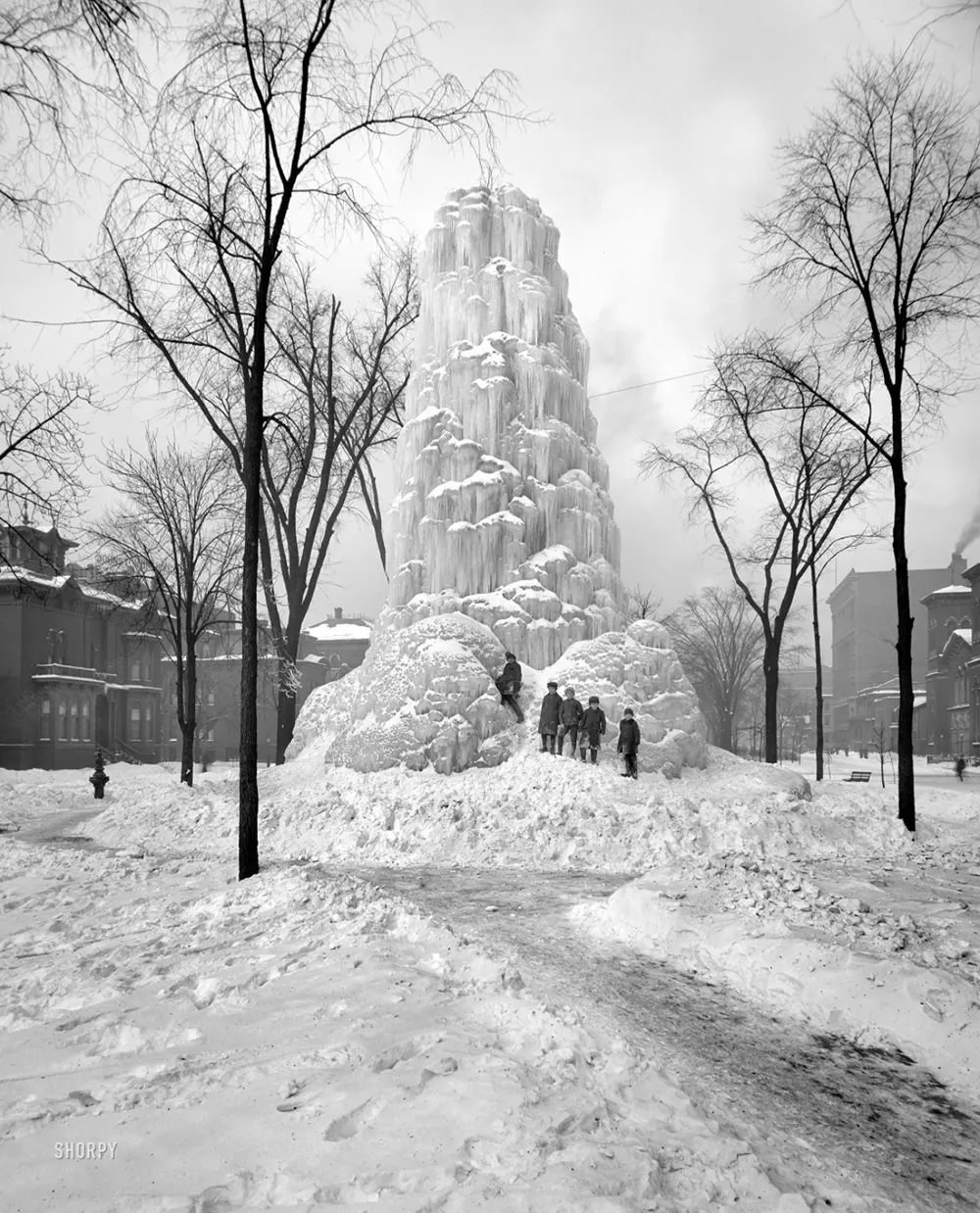

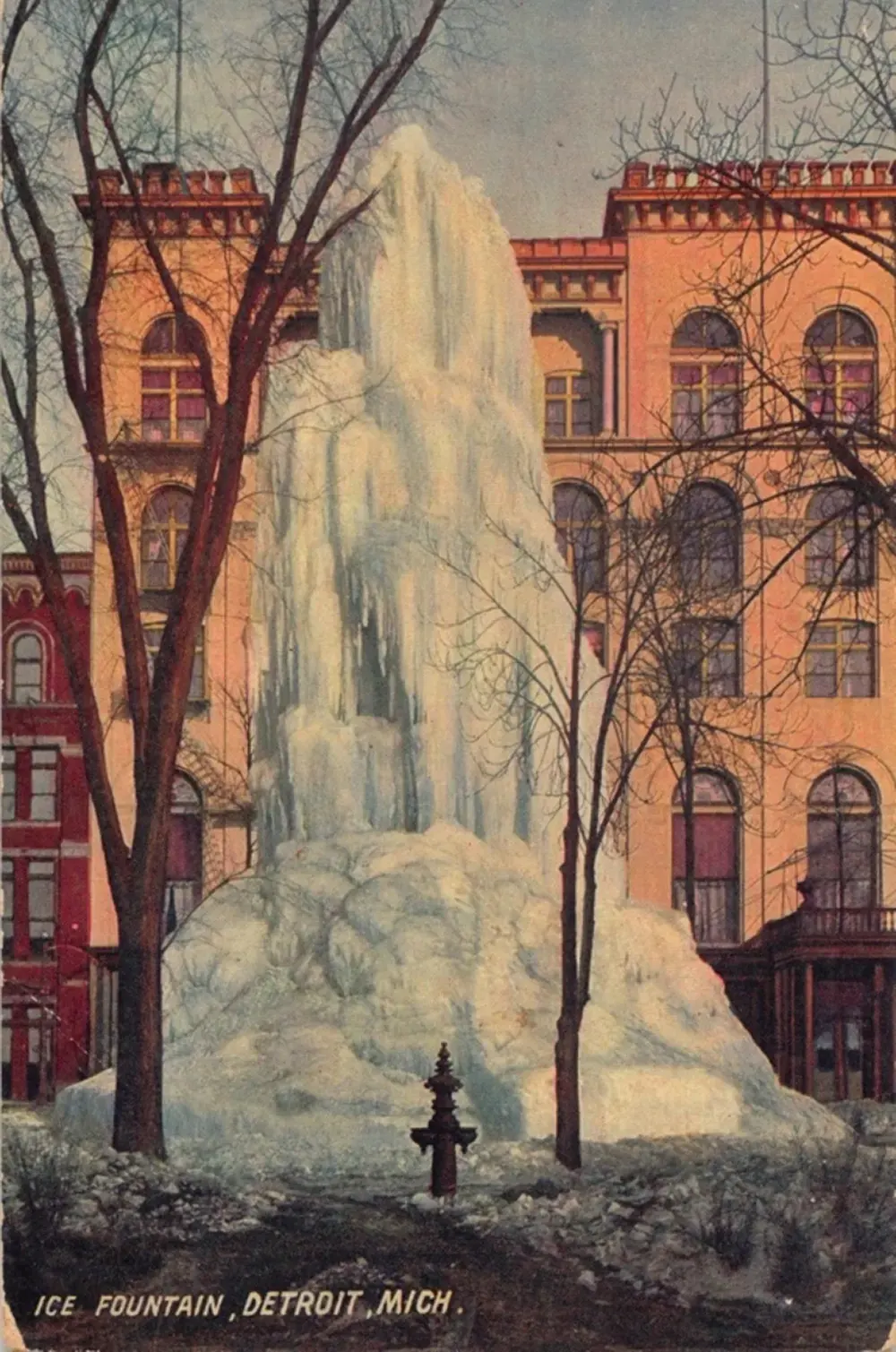
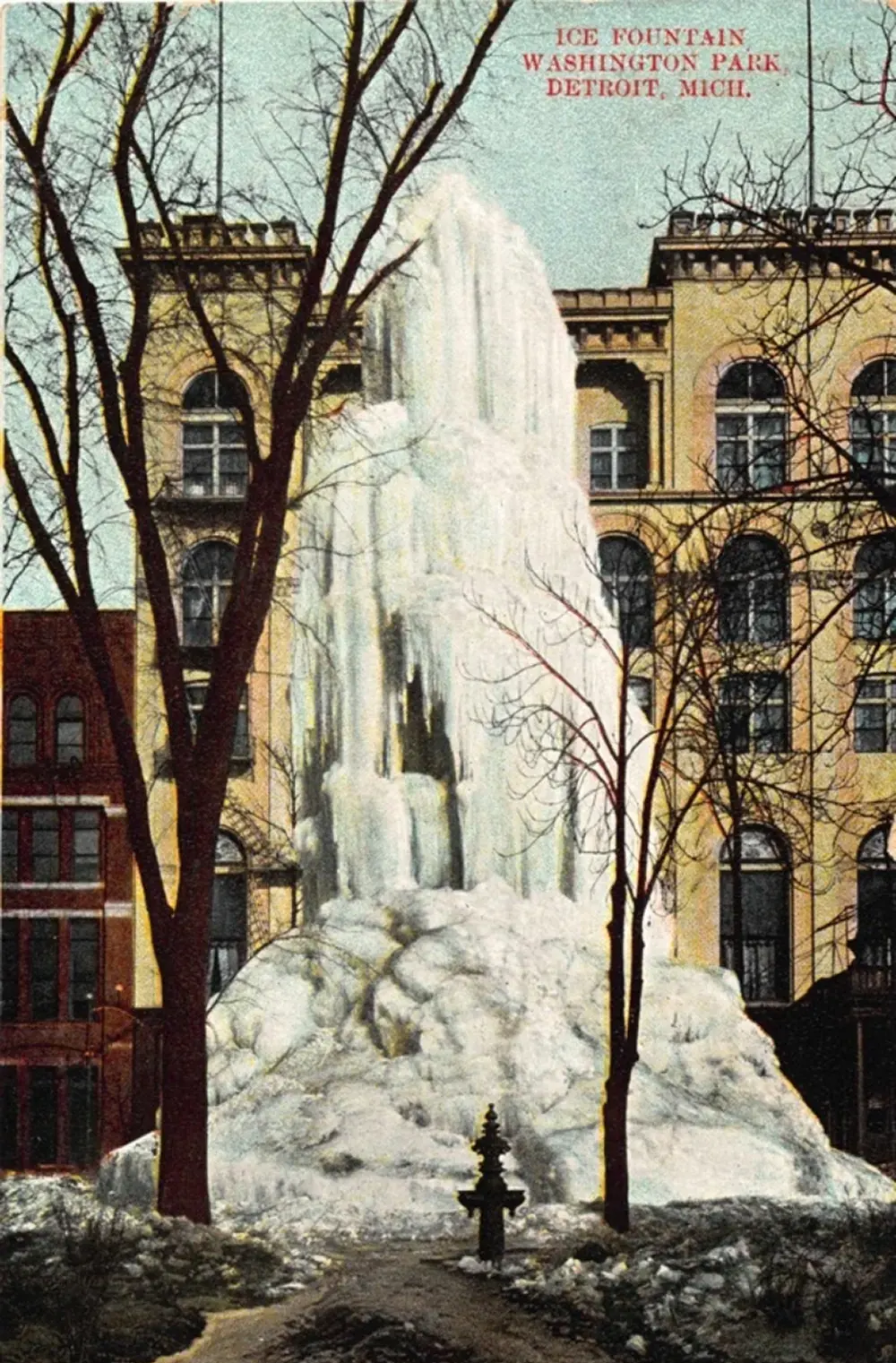


(Photo credit: Library of Congress / Historic Detroit)